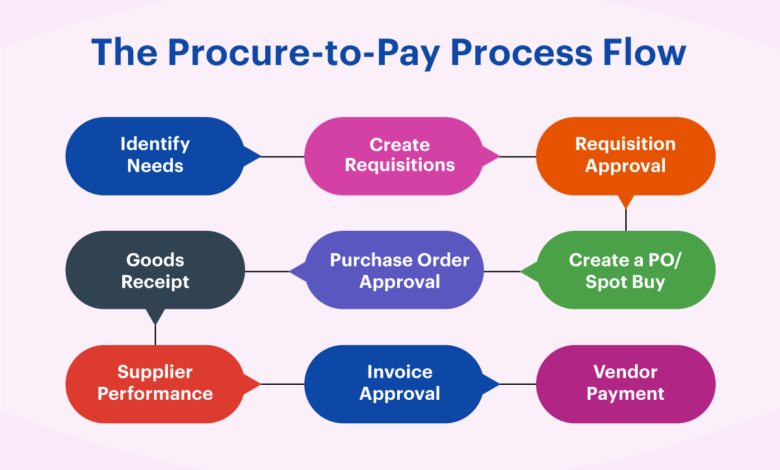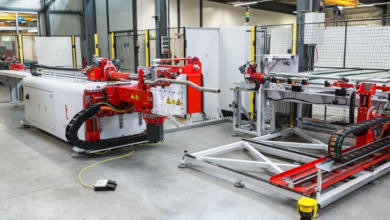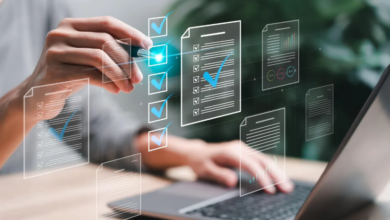Revolutionizing Business Operations with AI in Procure-to-Pay and AI Agents

Introduction to AI in Business Processes
The rise of artificial intelligence (AI) has transformed the way businesses operate, making processes more efficient and data-driven. Two significant innovations that are reshaping business workflows are AI in Procure-to-Pay and AI agents. These technologies are revolutionizing procurement, finance, and decision-making across various industries.
Understanding AI in Procure-to-Pay
What Is AI in Procure-to-Pay?
AI in Procure-to-Pay (P2P) refers to the integration of artificial intelligence within the procurement lifecycle. This process includes sourcing, purchasing, invoicing, and payment, all of which can be optimized using AI-powered automation and analytics.
Key Features of AI in Procure-to-Pay
AI-driven P2P solutions provide a range of functionalities to streamline procurement and financial processes:
- Automated Invoice Processing: AI extracts and processes invoice data with minimal human intervention.
- Smart Supplier Selection: Machine learning algorithms analyze supplier performance and recommend the best options.
- Fraud Detection: AI identifies anomalies in transactions and prevents fraudulent activities.
- Predictive Analytics: AI forecasts procurement needs based on historical data and market trends.
- Contract Compliance Monitoring: AI ensures adherence to contractual terms and conditions.
Benefits of AI in Procure-to-Pay
Implementing AI in P2P brings multiple advantages to organizations:
- Cost Savings: Reduces manual errors, unnecessary spending, and inefficiencies.
- Improved Compliance: Ensures adherence to company policies and industry regulations.
- Faster Processing Times: Streamlines purchase approvals, invoice matching, and payment processing.
- Better Decision-Making: Provides actionable insights through data analytics.
- Enhanced Supplier Relationships: Improves communication and contract management.
Industries Benefiting from AI in Procure-to-Pay
AI-powered procurement solutions are widely adopted across various industries, including:
- Retail: Optimizing supplier management and inventory control.
- Manufacturing: Automating procurement workflows and reducing costs.
- Healthcare: Ensuring timely sourcing of medical supplies.
- Finance: Enhancing fraud prevention and compliance management.
Exploring AI Agents and Their Role in Automation
What Are AI Agents?
AI agents are intelligent systems that autonomously perform tasks, make decisions, and interact with users. These agents leverage machine learning, natural language processing (NLP), and automation to execute complex business functions.
How AI Agents Work
AI agents function through a structured process:
- Data Gathering: Collecting information from multiple sources.
- Learning & Adaptation: Using AI models to recognize patterns and improve over time.
- Decision-Making: Applying logic and analytics to execute tasks.
- Automation & Execution: Carrying out business processes with minimal human oversight.
- Continuous Improvement: Enhancing performance through feedback and iterative learning.
Key Applications of AI Agents
AI agents are transforming business operations across different domains:
- Customer Support: AI-powered chatbots assist customers with inquiries and issue resolution.
- Financial Services: AI automates risk assessment, fraud detection, and investment analysis.
- Healthcare: AI agents assist in medical diagnosis, patient monitoring, and administrative tasks.
- E-commerce: AI-driven recommendation engines personalize shopping experiences.
- Supply Chain Management: AI optimizes logistics, demand forecasting, and vendor communication.
Advantages of Implementing AI Agents
The integration of AI agents into business processes yields several benefits:
- Increased Efficiency: Reduces manual workloads and speeds up operations.
- Enhanced Accuracy: Minimizes human errors in data processing and decision-making.
- Scalability: Adapts to business growth without requiring additional manpower.
- Cost Reduction: Lowers operational expenses by automating repetitive tasks.
- Better Customer Experience: Provides instant responses and personalized interactions.
The Synergy Between AI in Procure-to-Pay and AI Agents
How AI Agents Enhance Procure-to-Pay Processes
AI agents can significantly enhance AI-driven P2P processes in the following ways:
- Automated Vendor Communication: AI agents manage supplier inquiries, negotiations, and contract renewals.
- Real-Time Invoice Processing: AI bots handle invoice validation and payment authorization.
- Data-Driven Procurement Decisions: AI agents analyze spending patterns and suggest optimal purchasing strategies.
- Error Reduction in Transactions: AI automates matching invoices with purchase orders to eliminate discrepancies.
- Fraud Prevention: AI agents monitor transactions for suspicious activities and flag anomalies.
Future Trends in AI-Driven Procurement and Automation
As AI continues to evolve, the following trends are expected to shape the future of AI in procurement and AI agents:
- Hyperautomation: AI agents will collaborate with robotic process automation (RPA) for fully automated workflows.
- Cognitive Procurement: AI will incorporate deeper learning models to understand and predict procurement needs.
- Blockchain Integration: AI-driven procurement solutions will leverage blockchain for enhanced security and transparency.
- Voice-Activated AI Agents: AI agents will incorporate voice processing for hands-free interactions.
- Sustainable Procurement: AI will help businesses source eco-friendly products and track their environmental impact.
Conclusion
The integration of AI in Procure-to-Pay and AI agents is revolutionizing business operations, offering efficiency, accuracy, and scalability. From streamlining procurement processes to automating customer interactions, these AI technologies are shaping the future of digital transformation. As businesses continue to embrace AI-driven automation, they will unlock new levels of productivity and innovation, positioning themselves for long-term success in the competitive landscape.




